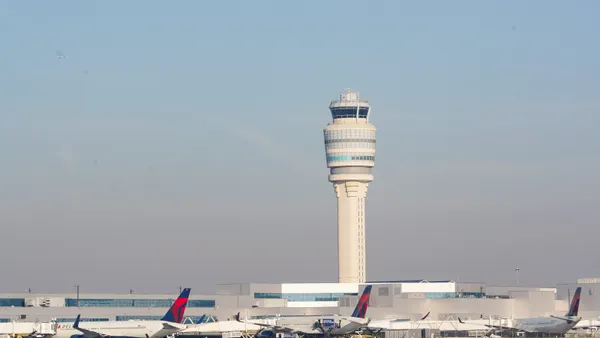Dive Brief:
- The American Society of Civil Engineers (ASCE) reported Tuesday that the U.S. will sacrifice 2.5 million jobs and $4 trillion in gross domestic product over the next 10 years if it can’t bridge the $1.44 trillion gap between funding and infrastructure spending needs.
- The U.S. has provided funding for only $1.88 trillion of the necessary $3.32 trillion, and without additional money, the shortfall will grow to $5.18 trillion by 2040, according to the ASCE.
- Surface transportation has the greatest disparity between funding and necessary work, while other areas of infrastructure have seen some relief through investment, the report noted.
Dive Insight:
The ASCE pointed to high-profile infrastructure failures like the Flint, MI, drinking water debacle, delays at LaGuardia Airport in New York, and a deadly 2007 Minnesota bridge collapse as examples of infrastructure problems that ended up costing more than the upgrades would have. The association also said that because substandard infrastructure has an impact on so many areas of the economy, American families will end up losing $3,400 each year because of it.
The funding of necessary infrastructure projects has been an ongoing debate in the U.S., with the discussion hitting a peak during the Congress' effort to pass a long-term highway-funding bill late last year. During the height of negotiations, Brendan Bechtel penned an op-ed piece for USA Today in which he begged Congress to appropriately fund infrastructure in the U.S. Aside from referring to the nation's roads, highways and bridges as a "crumbling, unsafe, environmentally unfriendly, productivity-choking system several generations old," he suggested public-private partnerships (P3) as a possible solution.
As a result of inadequate funding, states are always clamoring for much-needed federal dollars and coming up with various alternative methods to meet their needs. Some states like New York are pursuing P3s as a way to involve the private sector in operations as well as financing. Other states like California rely on gas taxes. Indiana recently approved a spending bill that incorporates many funding avenues. However, all of these states have been forced to pick and choose which projects will be awarded their limited funds.













